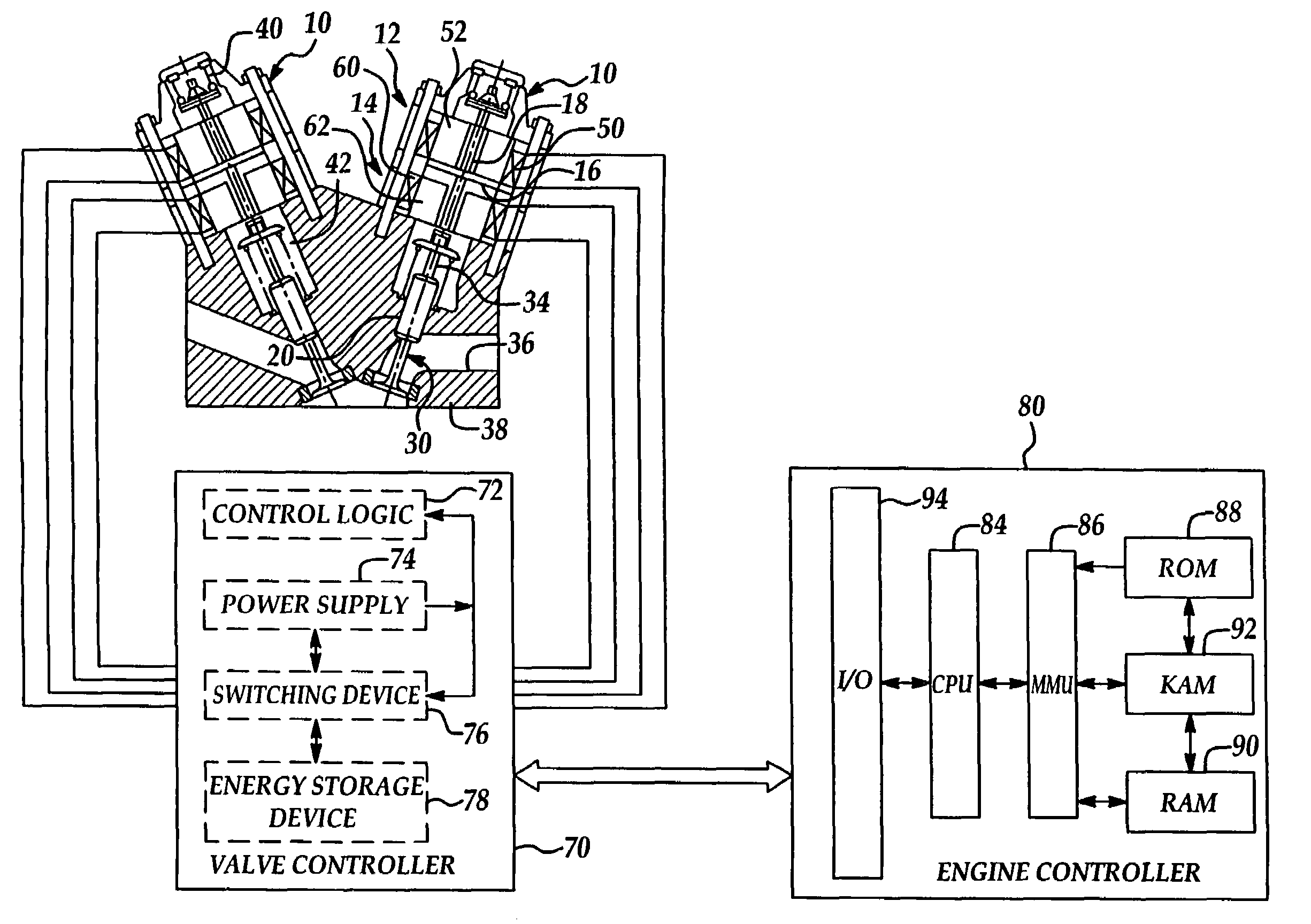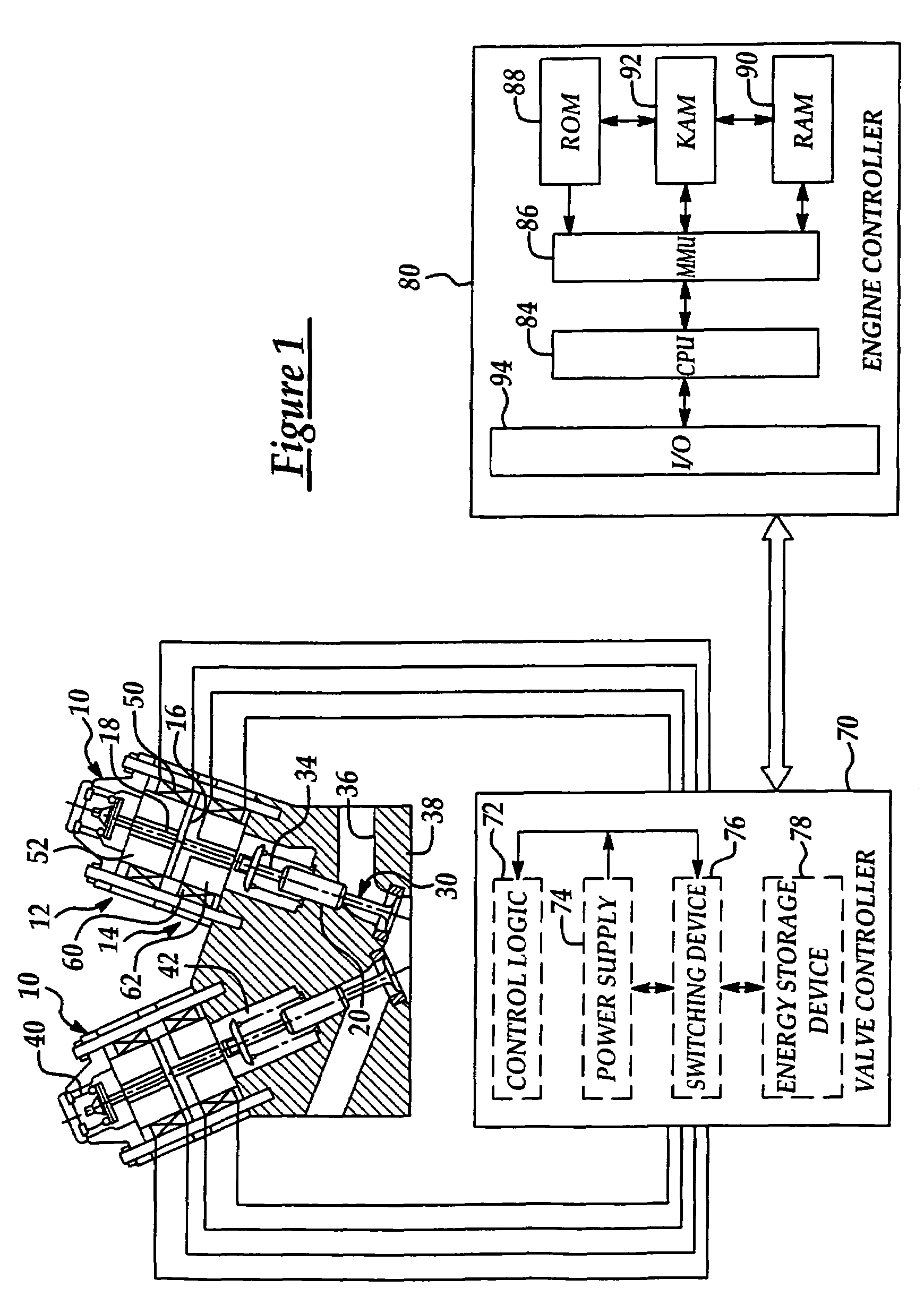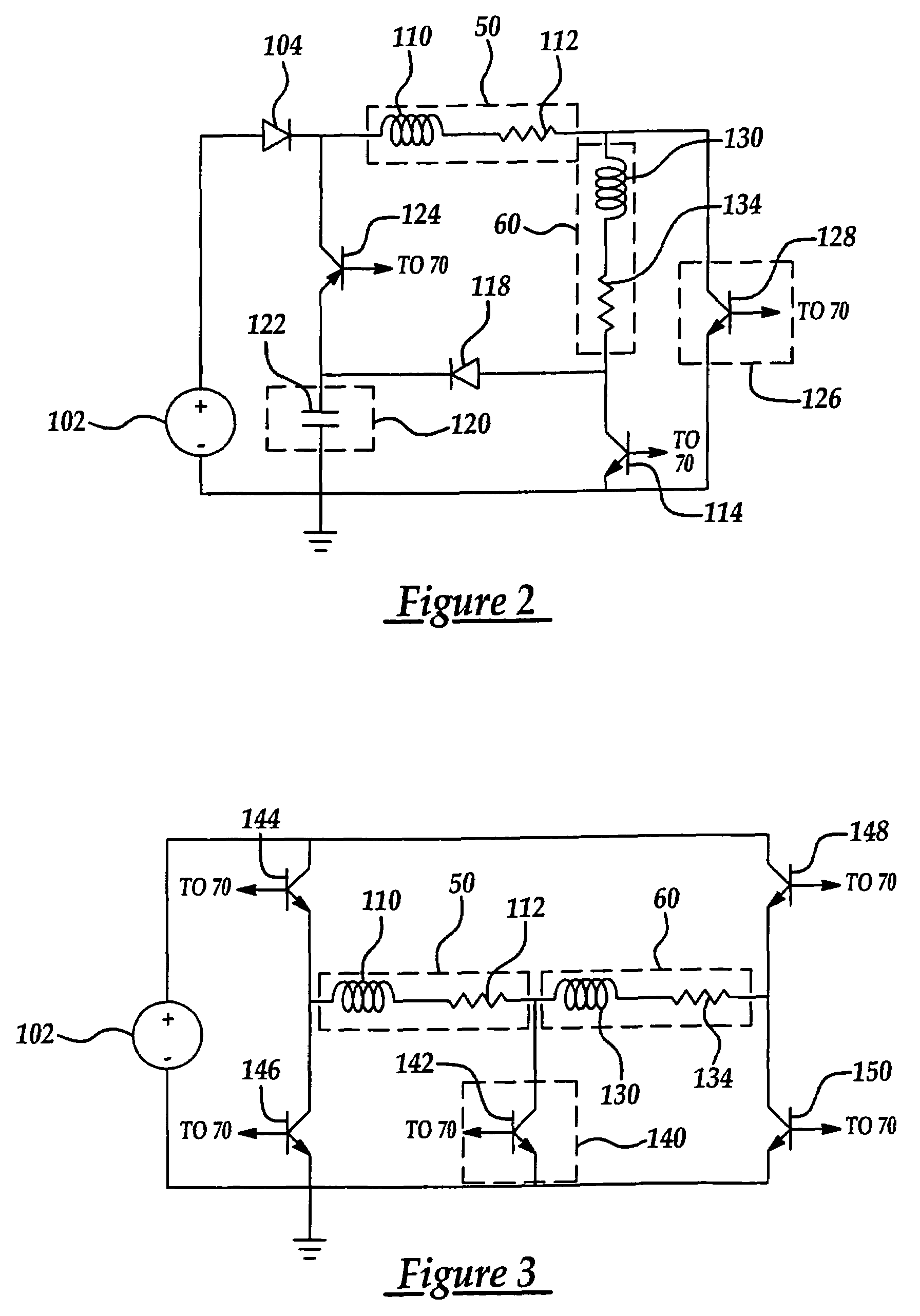Electromagnetic valve actuation with series connected electromagnet coils
a technology of electromagnet coils and electric valves, applied in the field of system and method of valve actuation, can solve problems such as wasted energy, and achieve the effect of reducing or eliminating force and simplifying valve actuation
- Summary
- Abstract
- Description
- Claims
- Application Information
AI Technical Summary
Benefits of technology
Problems solved by technology
Method used
Image
Examples
Embodiment Construction
)
[0021]Referring now to the drawings wherein like reference numerals are used to identify similar components in the various views, FIG. 1 is a cross-section illustrating one embodiment of a valve actuator assembly for an intake or exhaust valve of an internal combustion engine according to the present invention. Valve actuator assemblies 10 include an upper electromagnet 12 and a lower electromagnet 14. As used throughout this description, the terms “upper” and “lower” refer to positions relative to the combustion chamber or cylinder with “lower” designating components closer to the cylinder and “upper” referring to components axially farther from the corresponding cylinder. Those of ordinary skill in the art will recognize that actuator assemblies 10 generally include similar components that function in a similar or identical manner but may be sized differently to operate intake or exhaust valves, for example. The present invention is independent of the particular type of valve act...
PUM
| Property | Measurement | Unit |
|---|---|---|
| distance | aaaaa | aaaaa |
| distance | aaaaa | aaaaa |
| distance | aaaaa | aaaaa |
Abstract
Description
Claims
Application Information
 Login to View More
Login to View More - R&D
- Intellectual Property
- Life Sciences
- Materials
- Tech Scout
- Unparalleled Data Quality
- Higher Quality Content
- 60% Fewer Hallucinations
Browse by: Latest US Patents, China's latest patents, Technical Efficacy Thesaurus, Application Domain, Technology Topic, Popular Technical Reports.
© 2025 PatSnap. All rights reserved.Legal|Privacy policy|Modern Slavery Act Transparency Statement|Sitemap|About US| Contact US: help@patsnap.com



